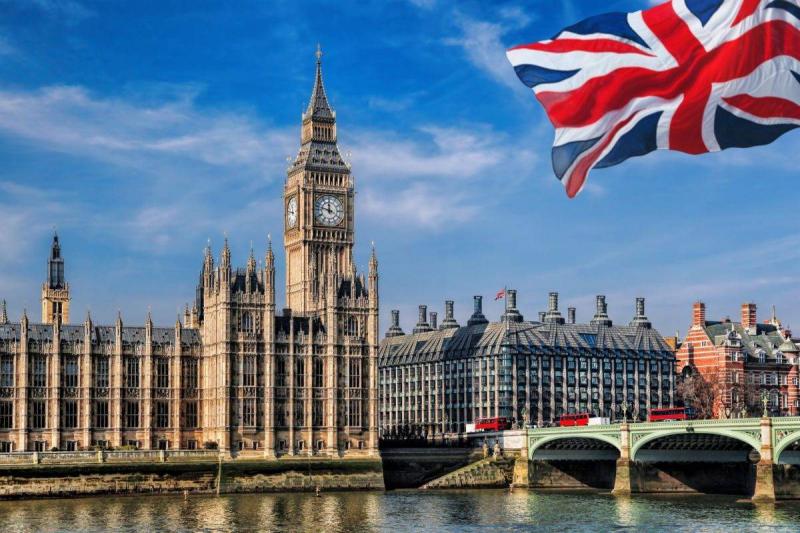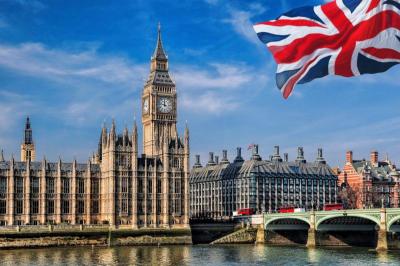As predictions suggest a sweeping victory for the Labor Party in next month's general elections in the United Kingdom, questions arise regarding the individuals who could be entrusted with key ministerial positions by party leader Keir Starmer. Below is an overview of the candidates for the most prominent roles:
**Deputy Prime Minister: Angela Rayner**
Rayner (44) breaks the norm in a country long dominated by a ruling class educated at private schools and the universities of Oxford and Cambridge. She grew up in social housing in northern England, dropped out of school without qualifications, and became a single mother at the age of 16. Having been a union leader, she was elected to Parliament in 2015, becoming the second most prominent figure in the Labor Party by 2020. Her leftist background and direct speaking style, marked by a clear northern accent, contrast with Starmer's more restrained demeanor. She once remarked about their partnership, "He softens my sharpness while I draw him out of his shell." In her role as Deputy Prime Minister, she will substitute for Starmer in weekly parliamentary interrogations when he is unavailable, and she will also be responsible for housing policy and addressing inequalities between regions.
**Finance: Rachel Reeves**
The former economist at the Bank of England is expected to become the first woman to hold the Treasury position, sitting alongside Starmer at 11 Downing Street. Reeves (45) considers this possibility a chance to surpass "the last frontier in politics." She has been a key figure in the Labor Party's efforts over the past four years to regain voter trust on economic matters, asserting that she has become "a natural presence in British financial and business circles." Relying on her reputation for economic competence, Reeves has committed to "iron discipline" regarding public finances, noting that her younger sister is also a member of Parliament. As an MP since 2010 and a former chess champion in her youth, she has promised to support both "labor" and "business" when she assumes the role of Treasury Minister.
**Foreign Affairs: David Lammy**
Lammy (51), an MP of African descent, has honed his diplomatic vision through numerous foreign visits over the past two years. He emphasized that the Foreign Office needs to "rediscover the art of grand strategy" in the post-Brexit era. Lammy is expected to push for a rapprochement with the European Union, a challenging task given the reservations from Brussels and EU-skeptic Britons. He is also likely to face pressure from the left wing of the Labor Party on issues such as policies regarding Israel and the Gaza war. Additionally, Lammy may have to navigate the potential return of Donald Trump to the White House, despite being a friend of former President Barack Obama. He has previously described Trump as a socially disturbed individual sympathetic to neo-Nazis, presenting a fundamental threat to the international order.
**Home Affairs: Yvette Cooper**
Cooper's extensive political experience will be tested in the Home Office, a portfolio where success is challenging. She has served as the opposition spokesperson for home affairs twice during the Labor Party's 14 years in opposition and has been an MP since the 1990s, holding a ministerial position in the shadow cabinet during the millennium. Noted for her understanding of policy and its intricacies, as well as her communication skills, Cooper, who ran for the party leadership in 2015, is anticipated to see immigration take center stage in the public debate during her tenure, a key issue in the election campaign that poses a potential vulnerability for Labor.
**Health: Wes Streeting**
Streeting, a fresh face in the Labour ranks, is among the party's most visible figures during the election campaign. The 41-year-old, hailing from a working-class family in East London, is seen as a potential future leader of the party and is regarded as one of its best communicators. However, he first needs to prove himself in what is one of the most difficult governmental positions, tasked with preventing further deterioration of the National Health Service, which has faced significant challenges and has yet to recover from austerity measures under the Conservatives and the impacts of the COVID pandemic. Streeting, who has overcome a past battle with cancer, will draw on his personal experiences within the system.
**Defense: Jon Healy**
Healy, a veteran within the party, is expected to take on the crucial defense portfolio amid the ongoing war in Ukraine and increasing global insecurity. Healy (64), first elected to Parliament in 1997 when Tony Blair became the Labor Party leader, has held various governmental positions throughout the party's 13 years in power. The Labor Party has pledged to increase military spending to 2.5% of GDP (up from 2.3% this year) as soon as economic conditions allow.




